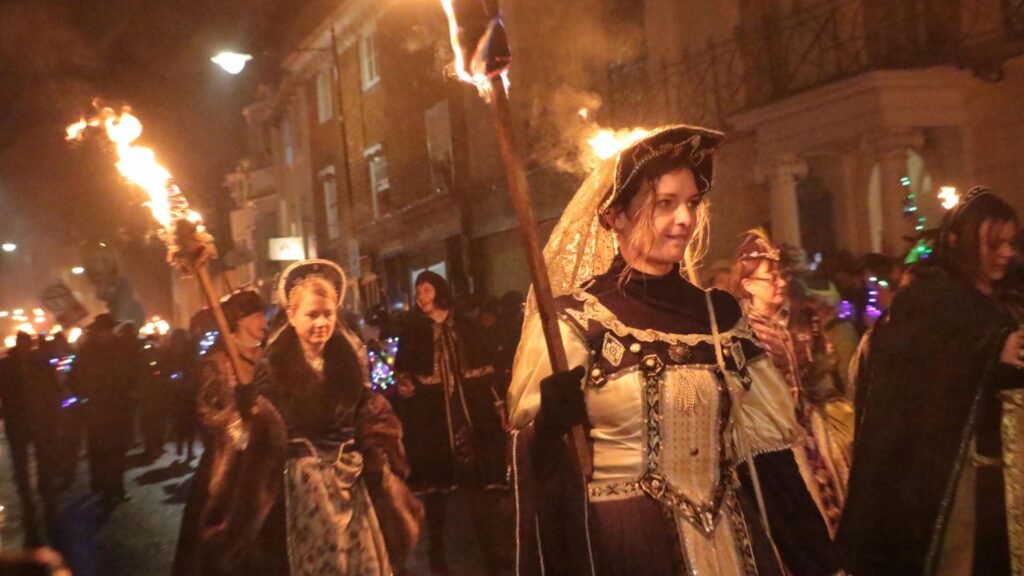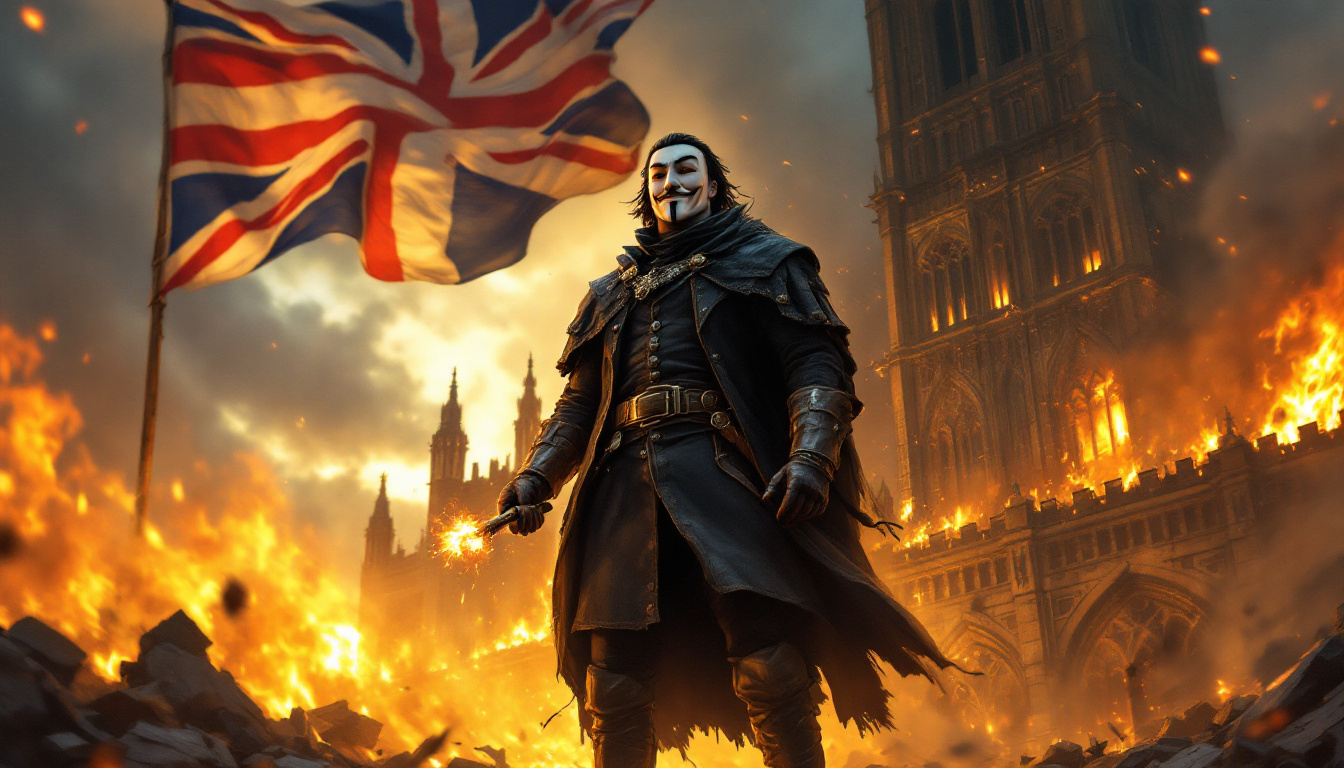Remember, remember
The fifth of November
Gunpowder, Treason and Plot
I see no reason
Why Gunpowder treason
Should ever be forgot
Guy Fawkes: The Man with a (Masked) Plan
November 5th—Bonfire Night! The day Britain lights up with bonfires, fireworks, and a fair bit of pie and peas. So, what’s all the fuss about? Enter Guy Fawkes, the man who, back in 1605, tried to “brighten up” the Houses of Parliament… with enough gunpowder to rival any rock concert.
A Yorkshire Lad and an Explosive Plan
Guy Fawkes, born around 1570, was just a lad from Yorkshire with a penchant for grand causes. Life took a twist when he joined a group of rebels with some rather loud ideas about King James I’s rule. Their solution? Blow up Parliament and send the king flying! After all, 36 barrels of gunpowder is a pretty clear way to say, “we’re not thrilled with the current leadership.”
As the one chosen to guard this stash under the House of Lords, Fawkes was primed for the big bang. But on the night of November 4th, the plot unravelled—thanks to an anonymous tip. Guards stormed the cellar, and despite his best “innocent bystander” act, Fawkes didn’t convince anyone, given his 36-barrel backdrop.
Fawkes’ Legacy
Guy Fawkes’ epic fail launched what’s now known as Guy Fawkes Night—a UK-wide tradition of bonfires, fireworks, and burning his effigy. Each November 5th, communities gather to toast marshmallows, crunch on bonfire toffee, and light up the sky in honour of this famously failed plot.
Since then, Fawkes’ image has had a bit of a makeover. Thanks to the graphic novel and film V for Vendetta, his mask is now a symbol of rebellion used by protest movements around the world. Who could’ve guessed that the guy with a cellar full of gunpowder would end up as the face of modern revolutions?
UK Traditions: The Local Flavour of Bonfire Night
Not all Bonfire Nights are alike! Let’s take a look at how different parts of the UK put their own spin on things:
- Lewes, East Sussex: Bonfire Night here is no small affair! Six bonfire societies each host their own parades, complete with costumes and effigies. Here, they burn not just Fawkes but often a selection of political figures (no one is safe!). Expect historic parades, an insane amount of fireworks, and a bonfire big enough to be seen from miles away.


- Yorkshire: As Fawkes’ birthplace, Yorkshire takes extra pride in celebrating Bonfire Night. In York, they go all out with historical reenactments, extra-large bonfires, and even lectures on the life of their infamous local lad.
- Ottery St Mary, Devon: Here, Bonfire Night takes on a fiery twist as locals carry massive flaming tar barrels through the streets. The “barrel run” tradition has been around for generations, and it’s truly a spectacle to behold—just don’t stand too close!
- Edinburgh, Scotland: Edinburgh adds a Celtic spin by blending Bonfire Night with Samhuinn, the ancient Gaelic festival that marks the end of harvest. Think bonfires, fireworks, and folks in mythical costumes, adding a bit of magic to the night.
Fun Facts about Guy Fawkes
- Not a Solo Plot: Fawkes had a whole crew of co-conspirators, but he just happened to be the unlucky one caught red-handed.
- Master of Disguise?: Fawkes was known for his knack for disguises, but it’s safe to say that standing next to a pile of gunpowder barrels wasn’t his best camouflage.
- An Instant Holiday: The first Bonfire Night was celebrated in 1606, only a year after the plot. Now that’s what you call a quick turnaround!
Here’s to the Bonfire
So, whether you’re watching flaming barrels in Devon, marvelling at Lewes’ parades, or cozying up by a small-town bonfire, take a moment to raise a marshmallow to Guy Fawkes. He may have missed his target, but his legacy is a night of fires, festivities, and a reminder that sometimes even the best-laid plans end with a bang, or a puff of smoke.


By Eskarina

Love it great write-up 😀
Thanks, lot’s don’t know its origins so I thought why not..
Interesting stuff!
I know for most in the UK its common knowledge but outside of the UK, its not really known or understood.